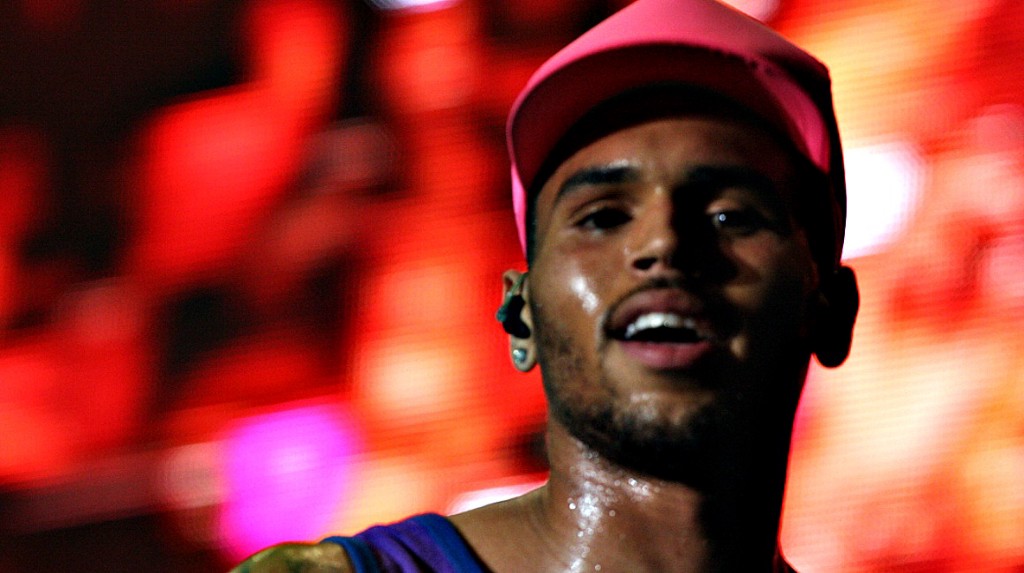
By Monica Busch
If you haven’t heard, R&B singer Chris Brown is planning to release a documentary chronicling his life, rise to fame, and subsequent infamy following his 2009 assault on then-girlfriend and Grammy award-winning singer Rihanna. The documentary, dubbed Welcome to My Life, does not have a release date, but Brown Tweeted the trailer earlier this week.
In the trailer, Brown’s rapid rise to fame is recounted, along with his early days dating Rihanna, which is described as “magical.” He is also lauded by artists like Usher, Jennifer Lopez, and Jamie Foxx as essentially being a gift to the modern entertainment industry. But before very long, suspenseful music builds and Brown remarks that he “went from being kind of like America’s sweetheart to Public Enemy №1” following his assault on his ex-girlfriend — the altercation that left the pop star’s face peppered with bruises, as seen in the now jarringly familiar photo of her face following the attack.
“I felt like a fucking monster,” Brown says. “I was thinking about suicide and everything else. I wasn’t sleeping, I barely ate. I was just getting high.”
The trailer ends with Brown promising that, despite doubts that some may harbor, his career is far from over.
If this sounds like a gross way of capitalizing on his indiscretions and a sneaky attempt to not quite take ownership of his actions, it’s because a bird that waddles and quacks is often a duck. While both Chris Brown and Rihanna have been largely quiet about the 2009 altercation aside from heavily coded lyricism, Chris Brown’s narrative has varied wildly from remorse to forgetfulness. One minute he says the night of the assault was a blur, the next he says it wasn’t. What is certain, however, is that choosing to address this one event in the first trailer for a documentary that one expects will cover his entire life is an intentional way to draw viewers in by making his violence the focal point.
Despite attempts by his mother, Joyce Hawkins, to downplay her son’s violent and aggressive reputation — one that far exceeds the infamous battering — Brown’s name is rarely uttered in the media without Rihanna’s close behind. While Rihanna’s victimization should not be — and is not — her identity, Chris Brown’s flagrant disregard for a woman’s physical and emotional well-being certainly should follow him. Rightfully, it does. Wrongly, he’s attempting to monetize his record in a way that requests sympathy from viewers.
Any trauma a perpetrator of domestic violence experiences from public shaming cannot reasonably exceed the trauma experienced by the target. But what else can be inferred from a trailer that, by highlighting Chris Brown’s depleted social standing and resulting stress, necessarily implies a juxtaposition of his sinking fame with the ever-growing success of his ex-girlfriend? Emphasizing how bad the aftermath was for Chris Brown is only marginally removed from victim blaming since, after all, Rihanna is the physical being around which his trauma resulted. In the clips, he makes the tragedy of being beaten up entirely about him. It’s like Brown is silently asking, “Couldn’t we/she/everyone have gone a little bit easier on me?” It’s like he’s saying that intentionally causing harm to another human being was just a simple lapse of judgement and self control that he doesn’t deserve to suffer for anymore.
Of course, the response should be that he is an able-bodied male who knew what he was doing when he put his girlfriend in a headlock and proceeded to beat her, but unfortunately we live in a society that continuously pardons and pities offenders of — specifically — violence against women. This, of course, is not new.
Take, for example, the Steubenville rape case trials in 2013, when CNN came under fire for lamenting the ruined futures of two teens convicted of raping an underage girl. Or the litany of sports figures and media outlets that said former Ravens running back Ray Rice should have been allowed to re-join the NFL, even after video surfaced of the player attacking his then-fiancee in an elevator. Or, take the 48 Hours special on Lauren Astley, a Massachusetts teenager who was murdered by her ex-boyfriend: While the coverage is arguably mostly narrative, the title — Loved to Death — is quite an introduction to a story about breakup violence.
Some may argue that Chris Brown served out his punishment via probation and community service, but the question is not whether he deserves to continue working or making music — that’s an argument for a different time. The question is whether he should be able to profit off marketing his life story as a tell-all about a high-profile domestic assault case that has the potential to not only re-victimize his ex-girlfriend, but also could be told through a medium that will not result in his monetary benefit.
Chris Brown is capitalizing off of his own violent acts — commodifying the actual, literal pain he inflicted on a person he was in a romantic relationship with. Usher remarks in the trailer, “If you truly love Chris Brown, then you felt everything that has gone on with him.” But combatting domestic violence is about prevention and trauma care, not spinning one’s life in some attempt to spring back into public favor by pandering to voyeuristic consumerism. It’s not about feeling what Chris Brown has felt, it’s about not excusing what Rihanna felt.
***
Lead image: YouTube

